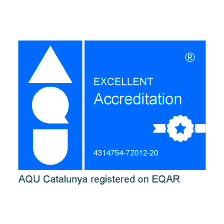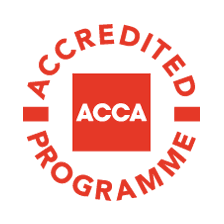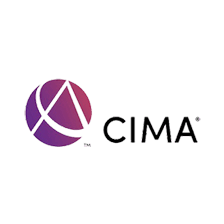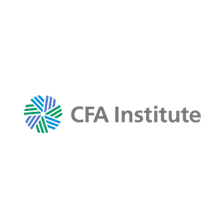
- About UPF-BSM
- Programs
- Faculty and research
- Companies and Organizations
- News & Events

Companies need professionals who can turn knowledge into decision-making.
The Master in Accounting and Financial Management is an official program, designed for an international audience, that prepares you, in just six intensive months, to make high-impact decisions in real financial environments.
Pursuing a master’s degree isn’t just an academic decision — it’s an investment in your future. That’s why it’s important to understand what this program truly offers and how it can help you move forward.
What will I gain from this program?
- A career boost toward financial leadership. You’ll be ready to take on higher-responsibility roles in financial management, accounting, or consulting.
- A global perspective. You’ll learn alongside international peers and develop a financial outlook grounded in real-world practice and shaped by an ever-changing environment.
- Recognized certification. This master is aligned with top industry certifications, including CFA, CIMA, and ACCA.
- Access to professional opportunities. Benefit from internships, job boards, and direct connections with leading companies like Danone, DKV, Mango, Henkel, Nestlé, Everis, Hewlett-Packard, Deloitte, PwC, and CaixaBank.
- An international professional network. In this program, networking isn’t a bonus, it’s a built-in part of your training.
This program is designed for finance professionals with drive, commitment, and a desire to grow. You’ll learn by doing, guided by experienced professors and industry professionals with diverse perspectives.
Our admissions process carefully evaluates each application to ensure all students are prepared for the program’s academic level.
Studying at UPF-BSM means training at a globally recognized school through an official program that blends theoretical knowledge with hands-on, professionally oriented learning.
Collaborators: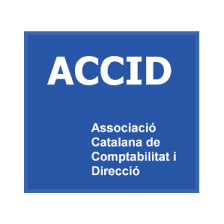
Why choose this program
EQUIS Accreditation
The UPF Barcelona School of Management holds the prestigious EQUIS accreditation, one of the most rigorous international standards for business schools. We’re the first school affiliated with a public university in Spain to achieve it.
Active faculty
Learn from UPF academics and working professionals who make real-world decisions at leading companies. The perfect balance between academic knowledge and practical experience.
International environment
Join classmates from around the world for six intensive months in Barcelona, a global city with a strong professional outlook and a unique character.
Internships at top companies
Gain access to real internship opportunities at companies like Danone, DKV, Mango, Henkel, Nestlé, Everis, Hewlett-Packard, Crandon, or PwC.
CIMA and ACCA certifications
Prepare for two of the most valued certifications in accounting and management: CIMA and ACCA. A key boost for your financial career.
Real employability outcomes
Many of our students change jobs, sectors, or even countries after completing the master. You won’t just gain knowledge: you’ll build a career with direction.
Who is it for?
This master is designed for finance and economics professionals looking to take the next step in their careers. Individuals with a solid foundation in finance, accounting, or business management who want to gain a more strategic, international, and impact-driven perspective.
This program is for you if you:
- Have a background or experience in finance, accounting, economics, or business administration.
- Are currently working (or have worked) in a finance department and want to grow, specialize, or pivot to a new role.
- Are looking for an official degree that opens doors internationally.
- Are interested in pursuing certifications like the CFA, CIMA, or ACCA.
- Want to expand your network with international professionals.
- Are ready to commit to six intensive months of training that will prepare you to lead.
It doesn’t matter if you come from the public sector, private enterprise, a startup, or a multinational: this program is built to help you take the next step, wherever you are on your professional journey.
Accreditations
UPF Barcelona School of Management is the business school of Pompeu Fabra University, the 1st Ibero-American university and the 16th placed university in the world, among those under 50 years of age, according to the Times Higher Education ranking.
We hold the EQUIS accreditation, the most prestigious institutional recognition for business schools worldwide, placing us in the international elite of academic management education.
The Master in Accounting and Financial Management is an official degree recognized by the Spanish Ministry of Education. In addition,Quality Agency of the University System of Catalonia (AQU Catalunya) has institutionally accredited the UPF-BSM. This accreditation certifies all the official university master's degrees that we teach and recognizes the quality of our educational model in accordance with the criteria of the European Higher Education Area (EHEA).
The master provides access to the CIMA (Chartered Institute of Management Accountants), ACCA (Association of Chartered Certified Accountants) and CFA (Chartered Financial Analyst) accreditations.
Curriculum
The master's program is organized into 3 major modules.
You must take all the compulsory subjects and choose two subjects from the elective offerings or the professional internship subject.
The master's program is completed with the elaboration of the Master's Final Project, which is developed throughout the course, parallel to the teaching activity.
Critical vision and a comparative international approach to accounting regulations (Spanish Reporting Standards and International Financial Reporting Standards).
Comparison with the Generally Accepted Accounting Principles US GAAP.
Review of the most recent research in Spanish accounting and international accounting.
Analysis of the latest trends and repercussions for the company.
Auditing principles, norms, and procedures.
Critical vision and a comparative international approach to auditing regulations.
Internal auditing and internal control.
Comparison with International Standards on Auditing.
Review of the most recent research in auditing.
Responsibilities and functions of the independent auditor.
Review of the most recent research in business analysis.
Economic and financial analysis of the company. One-dimensional and multidimensional models.
Financial statement analysis identifying business needs and determining solutions to business problems.
Working capital analysis. Relationship between working capital and the cash conversion cycle.
Analysis of the profit generating capacity. Analysis of cost and revenue of the firm which determines whether or not the firm is profiting.
Economic value creation.
Relationship between cost accounting, financial accounting, and management accounting.
Review of the most recent research in management accounting.
Activity based costing and activity based management.
Cost management information for strategic management purpose.
Cost structure and business models.
Cost reduction and continuous improvement.
Relationship between information systems and business processes.
Budgeting and management process: effective budgeting systems in practice.
Review of the most recent research in budgetary management.
Management control system techniques.
Performance measures.
Strategic planning and management system and the balanced scorecard.
Management control system techniques: long and short range planning.
Case studies in management control systems.
Financial system and strategies for mobilizing funds for investment.
Macroeconomic factors affecting business environment.
Review of most recent research in Spanish, European, and international financial systems.
Methods used to analyse securities and make investment decisions: fundamental analysis and technical analysis.
Fundamental analysis and the determination of the underlying health of a company by examining financial statements.
Technical analysis involving the use of charts for forecasting the direction of stock prices.
Stock Market and financial markets.
Latest trends in qualitative techniques in financial statement analysis.
Review of the most recent research on consolidated financial statements.
Latest trends in qualitative techniques in financial statement analysis.
Insolvency prediction models.
Credit scoring and credit rating models.
Analysis of individual corporations with aggregates and sectoral ratios.
You must demonstrate and put into practice the knowledge you have acquired throughout each of the modules of the master's degree.
Complementary activities
In addition to the core curriculum, this master offers a range of complementary activities and resources that enhance your learning, strengthen your professional profile, and connect you with a valuable international network.
International Certifications
The program includes targeted preparation and fast-track access to the following professional credentials:
- CIMA (Chartered Institute of Management Accountants)
- ACCA (Association of Chartered Certified Accountants)
These are two globally respected certifications in financial and management accounting.
In addition, the content of the program also prepares you to take the CFA (Chartered Financial Analyst) exam, one of the most highly regarded credentials worldwide in financial analysis and investment management.
Supplementary training
- Introductory accounting course (optional): If needed, based on your academic background, you can access a foundational course to refresh your accounting knowledge before the master’s begins.
- UPF-BSM Inside: Gain free access to a selection of cross-disciplinary online courses on topics such as applied data, communication, creativity, innovation and project management, sustainability, management, and leadership. These self-paced courses are available throughout the academic year.
International experience
- International mobility program: After completing the master, you’ll have the opportunity to continue your training at a top-tier academic institution outside of Spain. Spots are limited.
- Study Trip: If you choose this option, you can take part in an academic trip to a major European city, where you’ll attend seminars led by our partners and senior professionals from international financial institutions. You’ll also have the chance to connect directly with hiring decision-makers.
Qualification obtained
Once students have completed the course they will obtain the Màster Universitari en Direcció Financera i Comptable de l’Empresa / Master in Accounting and Financial Management en l’especialitat en Finances Corporatives. Specialization in Corporate Finance - Máster Universitario en Dirección Financiera y Contable de la Empresa / Master in Accounting and Financial Management en la especialidad en Finanzas Corporativas. Specialization in Corporate Finance issued by Pompeu Fabra University.
Issuance of official Master's Degrees: The amount stipulated in the DOGC (Official Gazette of the Government of Catalonia) must be paid for the rights to issue the degree. This rate varies annually and the rate in force at the time of application for the degree will be applied.
Faculty
The faculty of the master combines professors from the UPF-BSM department with active professionals from the financial sector.
You’ll learn from academics with strong research backgrounds and experts who apply what they teach in real companies. The perfect balance between academic rigor and practical experience, so you understand not just the concepts, but how to apply them in real-world decision-making.
Academic directors
Faculty
Collaborating faculty
- Maurici Alkain Adroer
Senior Manager at M&A Transaction Services Departament, PwC New York.
Master in Auditing and Financial Management from UPF Barcelona School of Management - Ute Busam
International Management Consulting · Coordination and execution of international project · Definition of Sales and Marketing Strategies · Channel Marketing · Definition and monitoring of objectives and KPI's · Analysis of new markets, products and competition · SWOT analysis · 4P and 7P analysis · Consultant and advisor in social entrepreneurship and start-ups · Financial due diligence · Feasibility Plan · 3-5 years Business Plan · Consulting and support in strategy definition - Felipe Canhavate
M&A and Project Finance Manager at Renewable Energy Company.
MSc in Economics at Barcelona Graduate School of Economics. Executive MBA por IESE. - Álvaro González
Investment manager at Ventient Energy
International Economics, International Business at EBS Universität für Wirtschaft und Recht
Finance and Banking at CIFF - Raül Martínez Buixeda
PhD in Business: “Hedge funds: risk inference in a real and severe stress scenario” Universitat de Barcelona (UB)
FX Consultant Eurofragance S.L. ByDemes SL. - Raúl Merino
Senior Risk Quant at VidaCaixa
Doctor of Philosophy (PhD), Financial MathematicsDoctor of Philosophy (PhD), Financial Mathematics, Master of Research (D.E.A.), Quantitative EconomicsMaster of Research (D.E.A.), Quantitative Economics, Master, Mathematics Applied to Financial Derivatives.Master, Mathematics Applied to Financial Derivatives. - Toni Prat Jorba
PDD from IESE Business School
Senior Partner at Global Abogados
Methodology
The master’s methodology is designed with a hands-on approach. Sessions are highly participative and combine concept-based lectures with real case analysis, teamwork, and the use of tools applied to today’s business reality.
Real business cases
You’ll work on real, up-to-date case studies that allow you to apply what you’ve learned and tackle scenarios similar to those you’ll face as a professional. Each case is an opportunity to strengthen your decision-making skills.
Teamwork
You’ll learn not only from your professors but also from your peers. Group work encourages the exchange of ideas, experiences, and perspectives, helping you develop key skills such as collaboration, leadership, and the ability to manage diverse teams.
International outlook
You’ll have the option to take part in an academic experience in Frankfurt, where you’ll visit leading financial institutions and attend sessions delivered by top-tier professionals in the sector. An immersive experience in one of the world’s financial hubs.
Final group project
You’ll conclude the program with an applied group project that brings together everything you’ve learned. A collaborative challenge that requires strategic thinking, structured problem-solving, and delivering results with real-world impact.
Evaluation
Evaluation in the master’s program is continuous. Throughout the course, several components will be assessed, including:
- Analysis of real case studies, exercises, and assignments
- Exams
- Oral presentations and active class participation
- Regular attendance (a minimum of 80% is required)
Tools
Project-oriented learning and the combination of lectures and active methodologies such as case studies, flipped learning, solving real problems and professional simulations allow the student to connect theory and practice, acquire advanced skills and achieve learning which is transferable to work.
You will have:
- Master's Final Project or Postgraduate Final Project
- A personal mentor to monitor your final project
- Digital resources to achieve transversal skills
- Interdisciplinary activities and workshops
Professional Future
This official master is built to turn theory into action, helping you take the next step in your career: whether that means changing roles, taking on greater responsibility, or accessing new professional opportunities.
It offers cross-functional training that integrates accounting, auditing, taxation, corporate and international finance, data analysis, and management control. Throughout the program, you’ll develop essential skills to work in areas such as accounting, corporate finance, risk analysis, or consulting — all with a practical, applied focus.
Everything is centered on employability: giving you the confidence to perform in real-world environments, make well-informed decisions, and deliver value from day one.

Student profile
Each year, the program brings together young professionals from various countries with academic backgrounds in accounting, finance, economics, or business administration.
All of them share the same goal: to prepare themselves to stand out in the international financial market through a solid, applied, and recognized education.
Average age
Average number of years of working experience
International Students
Career opportunities
The program is designed to help you break into the financial sector with real international projection. If your goal is to grow in accounting, corporate finance, or consulting, this is where you prepare to take that leap with confidence.
Curricular internships
During the program, you’ll complete a mandatory internship at a national or international company. From day one, you’ll be supported by an internship coordinator who will help you find the right placement, handle the logistics, and be your go-to contact throughout the experience.
We’re talking about companies like Danone, Nestlé, DKV, Mango, Everis, Henkel, or Hewlett-Packard — internships that can lead to real job opportunities.
What roles will you be ready for?
After completing the program, you’ll be prepared to take on positions such as:
- Financial Manager
- Finance or Accounting Consultant
- Financial Risk Analyst
- Internal Auditor
- Financial Advisor

